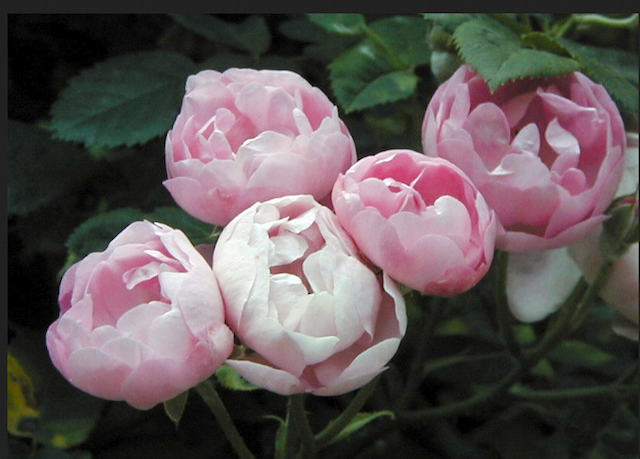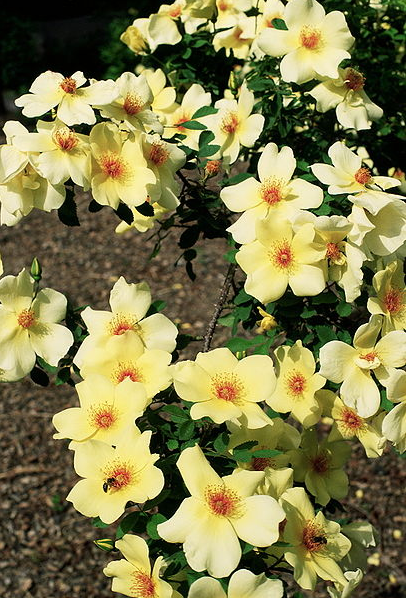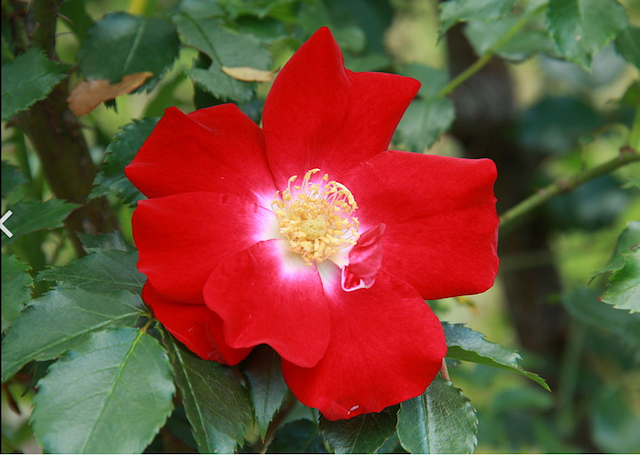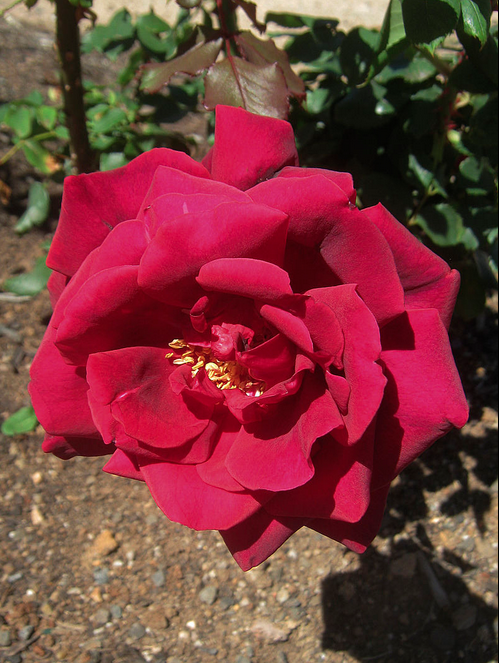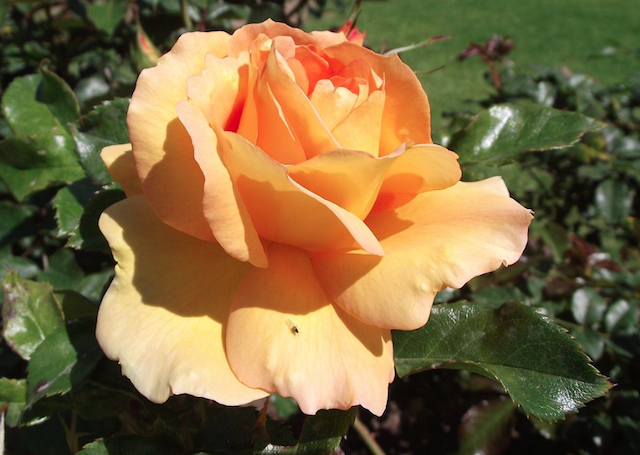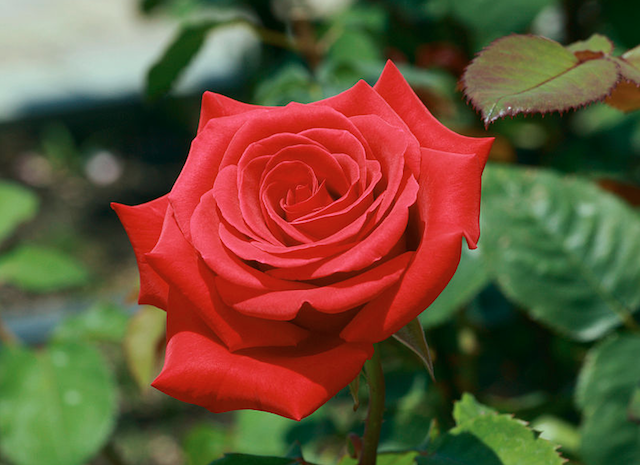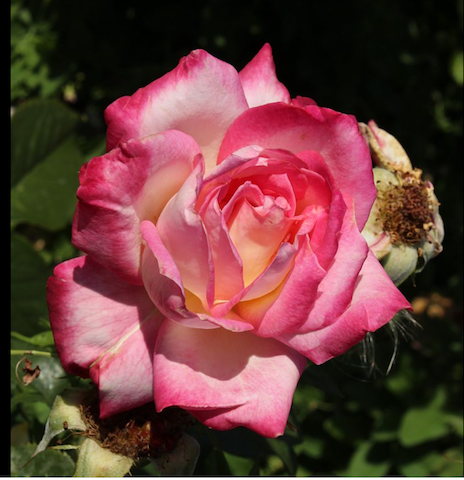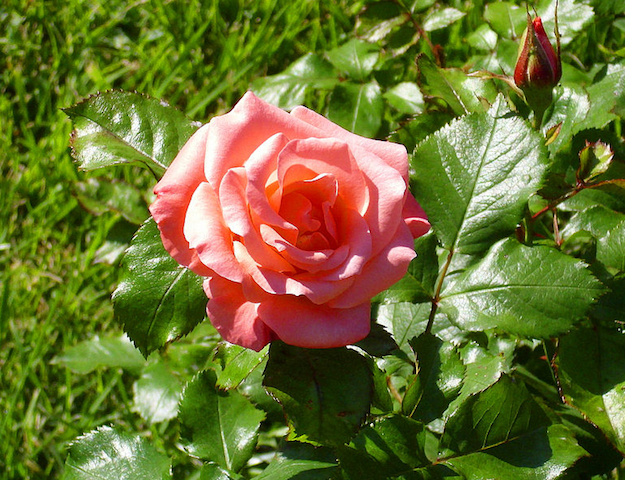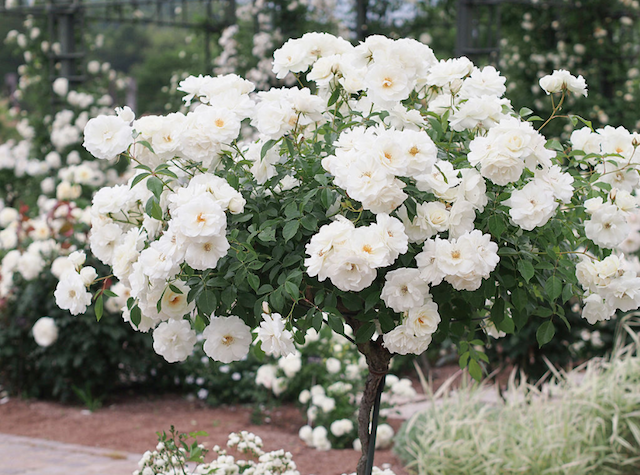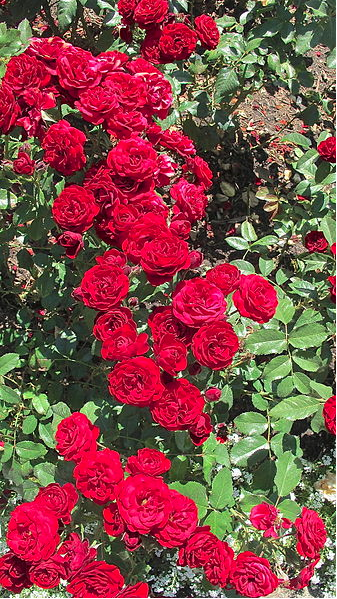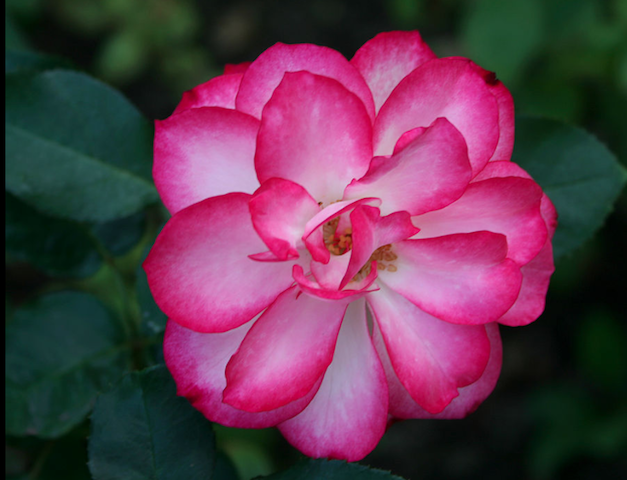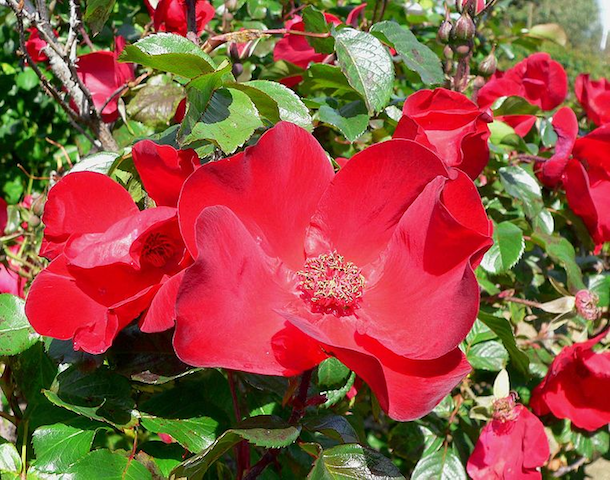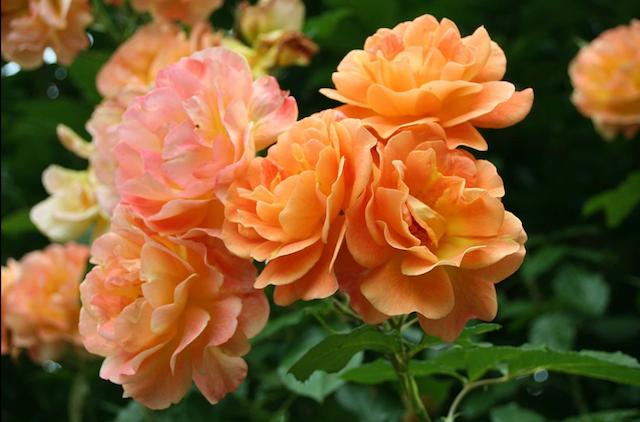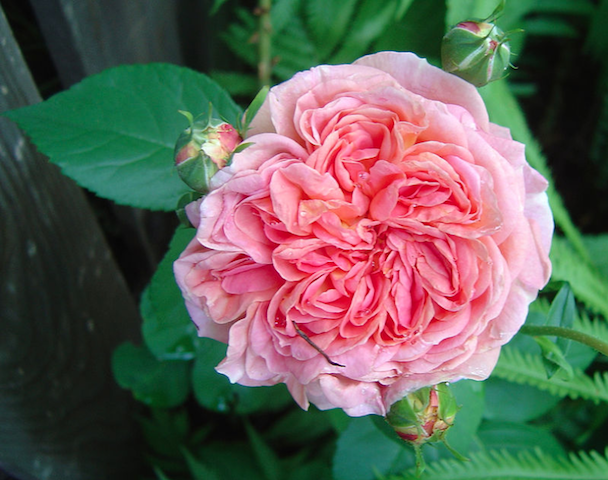Those who first discover an affinity for rose blooms often also develop an fierce love of acquisition. That’s when the world of rose growers first opens and the newbie aficionado suddenly realizes there’s not only different categories of roses but rose horticulturalists with specific visions that lie behind the choices we typically see at the nursery.
One such is the Kordes family of Hamburg, Germany starting in 1887, who sought to breed garden roses that were suitable for the German climate. While a prisoner on Isle of Man during WWI, Wilhelm I had opportunity to study and collect information on parentage of local roses. Later, he collected many roses for propagation including the native European roses like Rosa canina, R. spinossima and R. rubinginosa.
Although Hamburg area is zone 8, they do have a continental. maritime climate with cool, cloudy wet winters and moderately warm summers. However, the native roses with which Kordes were experimenting are tolerant of very cold winters and warmer temperatures (zones 3-5 and down to 9).
Some of these early roses of the 1930’s were the shrub roses Raubritter, Karl Forester and the beginning of “Fruhling” series like Fruhlingsgold.
Son Wilhelm II crossed two types of species roses in 1940 (R. wichuriana and R. rugosa) and by luck of a few seeds produced via self pollination, a new species resulted that they named Rosa kordesii in 1952. It is through the introduction of new genetic combinations that progress is made in plant breeding.Rosa kordesii bequeathed dark glossy foliage and a better degree of cold tolerance to future rose breeders who included it in their rose pedigrees. For example, the hardy Canadian Explorer roses have R. kordesii in parentage.
DORTMUND 1955
The main classes of roses we see from Kordes are Classic and Modern Shrub roses including the Hybrid Musks, Floribundas, Hybrid Teas and Climbers. When the landscaping roses (low and wide, often used in public spaces planted en masse,) they also developed roses for that category and have also ventured into the cut flower market for growers.
Germany has been on the forefront of the green movement for decades now and has responded to the desire for growing roses that grown on their own roots without needing resort to chemical sprays. The company stopped using pesticides in the 1990’s and began evaluating their roses based on this. It was remarked that the roses introduced by Kordes after 2000 are “vastly superior in disease resistance”. Their rose seedlings have a 7 year trial to test their attributes. The current goals are winter hardiness, rain resistant, fungal disease resistance, many blooms with quick repeat and self cleaning. Millennials are liking the qualities of Kordes roses which have a wide variety of colors, are pretty, easy and have the desired rose qualities for people who are sick to death of Knock Out Roses.
With foreign companies like Kordes, there is often an exclusive agreement with an American company that gets first choice to market varieties, then other companies get to choose from the remainder. Currently this US distributor is Star Roses. Americans do not get access to all the potential varieties but in Europe and UK, Kordes is very well known and wins awards widely.
Kordes roses with German names has led to some confusion in the market leading to renaming of varieties with an English name. So, one would find Kordes hybrid Scotch shrub rose Fruhlingsmorgen (1942) as the English “Spring Morning” or something seemingly unrelated to the translation. For example “Hannah Gordon” is also called “Raspberry Ice”. They also retain the German name in other cases. Now they seem (on their website) to be grouping their roses into categories of similarity of size, habit and usages. For example, Fairytale Roses are floribundas with a heavily petaled nostalgic look in many colors and have excellent disease resistance. Vigarosas are floribundas and shrub roses that have a low spreading habit and have been rigorously tested.
In the US, our more well known rose rating system comes from the ARS. so here are some of the past winners from Kordes.
For rose fragrance ARS James Alexander Gamble Award
Crimson Glory HT 1935 reigned as a world favorite.
Sunsprite, Floribunda, 1973
ARS /Other Awards
Eureka, Floribunda, 2002
Kardinal , HT, 1985
Perfecta, HT, 1957
Folklore, HT, 1967
Iceberg, Floribunda, 1958 (Hall of Fame)
Lavaglut, Floribunda, 1978
Hannah Gordon, Floribunda, 1983.
Robusta, Modern Shrub-Hybrid Rugosa, 1979
Westerland, Shrub Climber, 1969
Alchymist , Shrub Climber, 1956

